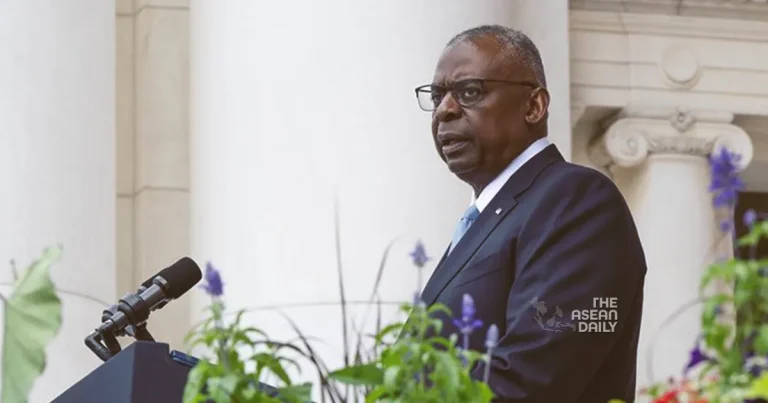30-5-2024 (WASHINGTON) In a bid to allay mounting concerns among Asian allies, US Defence Secretary Lloyd Austin is set to embark on a crucial tour of the region, underscoring Washington’s unwavering commitment to countering China’s growing assertiveness. Despite the ongoing conflicts in Ukraine and Gaza dominating the global spotlight, experts assert that the Biden administration’s focus on the Indo-Pacific remains steadfast.
As part of his regional visit, Austin will attend the annual Shangri-La Dialogue security meeting in Singapore, where he is expected to deliver a resounding message of solidarity with America’s Asian partners. Additionally, he will make a brief stopover in Cambodia, seeking to reverse some of Beijing’s recent geopolitical gains in the strategically pivotal nation.
Elbridge Colby, a former senior Pentagon official during the Trump administration, candidly acknowledged the challenges facing the United States in the region. “At this point, it’s essentially undeniable that we’re not as focused on Asia as we need to be,” Colby remarked. “It’s not about our current performance versus our past performance… It’s very clear that we are not keeping pace with China’s ongoing military build-up.”
While the US has provided substantial military aid to Ukraine and Israel in the wake of their respective conflicts, concerns have been raised about the nation’s capacity to maintain a robust presence in the Indo-Pacific. A senior US defence official, speaking on condition of anonymity, emphasized that Austin’s speech at the Singapore summit would underscore the importance of regional alliances.
“Our actions are speaking through the incredible achievements we’ve had over the last couple of years in terms of doubling down on our alliances, strengthening our force posture, investing in the capabilities we need,” the official added, citing agreements such as the AUKUS defence pact and expanded basing agreements with the Philippines as tangible signs of progress.
However, some officials have expressed concerns over Beijing’s growing assertiveness in recent years, exemplified by the “punishment” drills launched around Taiwan following the inauguration of President Lai Ching-te. These exercises involved heavily armed warplanes and simulated attacks, further escalating tensions in the region.
During his visit, Austin is expected to engage in talks with Chinese Defence Minister Dong Jun on the sidelines of the Shangri-La Dialogue. A second senior US defence official revealed that the discussions would encompass “regional and global security issues,” emphasizing the importance of military dialogue to avoid miscommunications.
In Cambodia, Austin’s brief visit aims to reverse some of the gains Beijing has made in recent years. US officials are hopeful that the country’s new Prime Minister, Hun Manet, who studied at West Point, will be more aligned with Washington’s interests than his predecessor.
China’s plans to send two warships to Cambodia and East Timor have further fueled US concerns over Beijing’s growing presence at a key Cambodian naval base. However, Derek Grossman, a defence analyst at the RAND Corporation, expressed scepticism about the impact of Austin’s short visit, stating that “values-based arguments and engagements are usually considered insulting to the Cambodians.”




